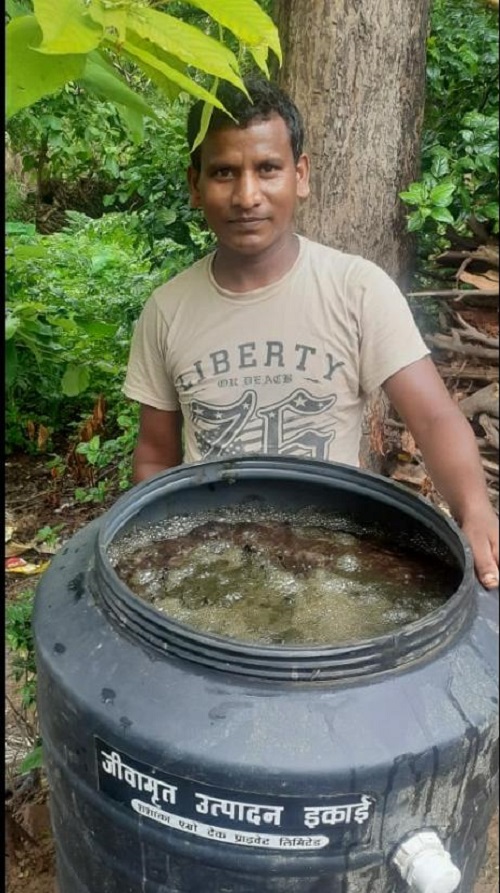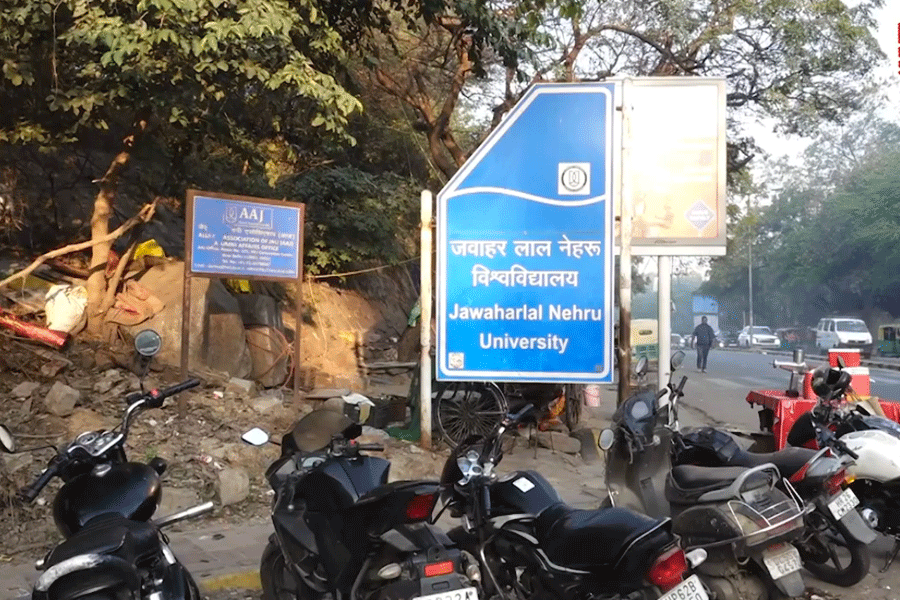Singrai Soren is witnessing a positive turnaround in his fortune.
The 37-year-old tribal farmer from Khikdihutu village in Gorgora panchayat of Jamshedpur block has started organic farming, a move which is to paying rich dividends. Soren is using Jeevamrut (in liquid form) as a fertiliser for vegetable farming.
Jeevamrut is a liquid organic manure popularly used as a means of organic farming. It is considered to be an excellent source of natural carbon, biomass, nitrogen, phosphorous, potassium and a lot of other micro nutrients required for the crops.
“I used chemical fertilisers in paddy and vegetable farming and spent Rs 8,000 to 10,000 every year. But after adopting Jeevamrut, my farmland has become more fertilised and expenses towards farming has come down,” Soren said, adding his profit has also gone up.
Soren has started making Jeevamrut at his home thanks to help extended by district agriculture officer Mithilesh Kalindi. The progressive farmer grows sweet gourd, bitter gourd, radish, green beans and brinjal at his farm which is spread over an acre.

Singrai Soren shows Jeevamrut at his farm. Bhola Prasad
The farmer sprinkles and also makes the fertliser reach to the crops via small drains. “I have started making Jeevamrut at my home. It’s easy to make. I am highly satisfied after adopting organic farming. I am not facing financial crisis any longer. My family is also happy,” said Soren.
Jeevamrut is made from cow dung and urine, black jiggery, lentil powder and handful of soil. First lentil powder and jaggery are mixed and then cow dung is added. The solution is kept for 2-7 days in the shade for fermentation, Soren explained.
According to him, the use of chemical insecticides has also become a thing of the past now. “I used to spray chemical insecticide but this practice has been discontinued after I adopted Jeevamrut as a means of fertiliser. The quality of the soil has also improved,” Soren pointed out.
Besides paddy, Soren also grows vegetable in Kharif season. He sells vegetables at the local haat bazaar with help from his wife.”I have started earning 40,000-50,000 yearly by selling vegetables. Now, I have become self-reliant and am able to take care of my family’s needs,” he added.
Soren called upon the farmers to, besides traditional paddy farming, also go for vegetable farming. “By using Jeevamrut, farmers will make profit and also become self-reliant and fulfil the needs of their families. I am an example,” Soren said.










